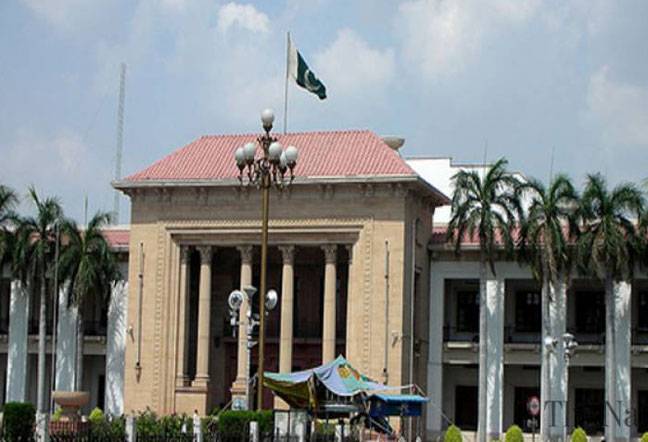LAHORE - The Punjab government in its appeal to be filed today (Saturday) in the Lahore High Court has claimed that Justice Sayyed Mazahar Ali Akbar Naqvi has ‘failed to dilate upon the question whether the appointment of a commission is an administrative measure or a judicial remedy’.
According to reliable sources, the appeal – a copy of which is available with The Nation – will be fixed for Monday before the full bench constituted on Thursday to hear all the petitions on Model Town incident in which 14 PAT workers were killed in 2014. Justice Naqvi ordered the Punjab government the other day to make public the Justice Ali Baqar Najafi report.
In its 21-page appeal, the main point of the government is that commission proceedings is ‘not judicial proceedings’. The government in its 27-point appeal has also given the references of 11 petitions filed by different lawyers and PAT.
It read:“The bench could not address the question if a high court judge can be appointed under the provisions of Punjab Tribunals of Inquiry Ordinance-1969 to probe into a matter on the administrative side or not.
“It is felt that there should be a general law authorising the government to appoint an inquiring authority on any matter of public importance, whenever considered necessary, or when a demand to that effect is made by the legislature and that such law should enable inquiring authority to exercise certain specific powers, including the powers to summon witnesses, to take evidence on oath, and to compel person to furnish information. The bill is designed to achieve this object. It will be clear from these provisions that the act was intended to cover matters of public importance.”
The appeal added: “In matters of public importance it may be necessary for the government to fix the responsibility on individuals or to kill harmful rumours. The ordinary law of the land may not fit in such cases apart from it is time consuming. The commission under the law is given the power to regulate its own procedure and also to decide whether to sit in-camera or in-public.
“A commission appointed under it does not decide any dispute. There are no parties before the commission. There is no list. The commission is not a court except for a limited purpose. The procedure of the commission is inquisitorial rather than accusatorial.
“The commission more often may have to give assurance to the persons giving evidence before it that their statements will not be used in any subsequent proceedings except for perjury. Without such an assurance, these persons may not come forward to give statements. If these persons have got lurking fear that their PG NO 170 statements given before the commission are likely to be used against them or utilised for productive use on them any other proceeding, they may be reluctant to expose themselves before the commission.”
The government claimed the judge also lost sight of the fact that the recommendations of the commission “are not enforceable and the exercise leading to the report is not a judicial function properly so-called”.
It went on: “Learned single bench did not deal with the question whether the chief justice of the high court can act as consultee of the provincial government in the absence of any constitutional mandate or statutory provision for the purpose of Section 3 of the said Ordinance.
“It is important to submit here that the impugned judgment does not deal with the question whether the appointment of a judge of the high court as tribunal, commission or committee under the said ordinance is violative to the principles of trichotomy of power and independence of judiciary as enshrined under the constitution. The single bench did not determine if the notification dated 17-6-2014 was in violation of the mandate of the constitution and whether or not it suffered any legal infirmity whatsoever. It is also questioned if the judge committed an error of law in not appreciating that the commission is obviously not required to adjudicate upon the rights of the parties and has no adjudicatory function.”
The appeal further said that the single bench neither gave an opportunity to the government to submit its written response/parawise comments nor directed it to submit the same.
“Had an opportunity been provided to the government, all the legal questions as mentioned above would have been raised to further convince the single bench to send the matter to the full bench, particularly in view of the settled practice of this court to serve the ends of justice and fair play,” the government appealed.
It submitted that single judge was reminded that jurisdiction to hear the matter was the moot point and therefore, drew the court attention to the fact that at least seven writ petitions involving the same subject matter were pending before the full bench. The government prayed the court to set aside the September 19 decision.






